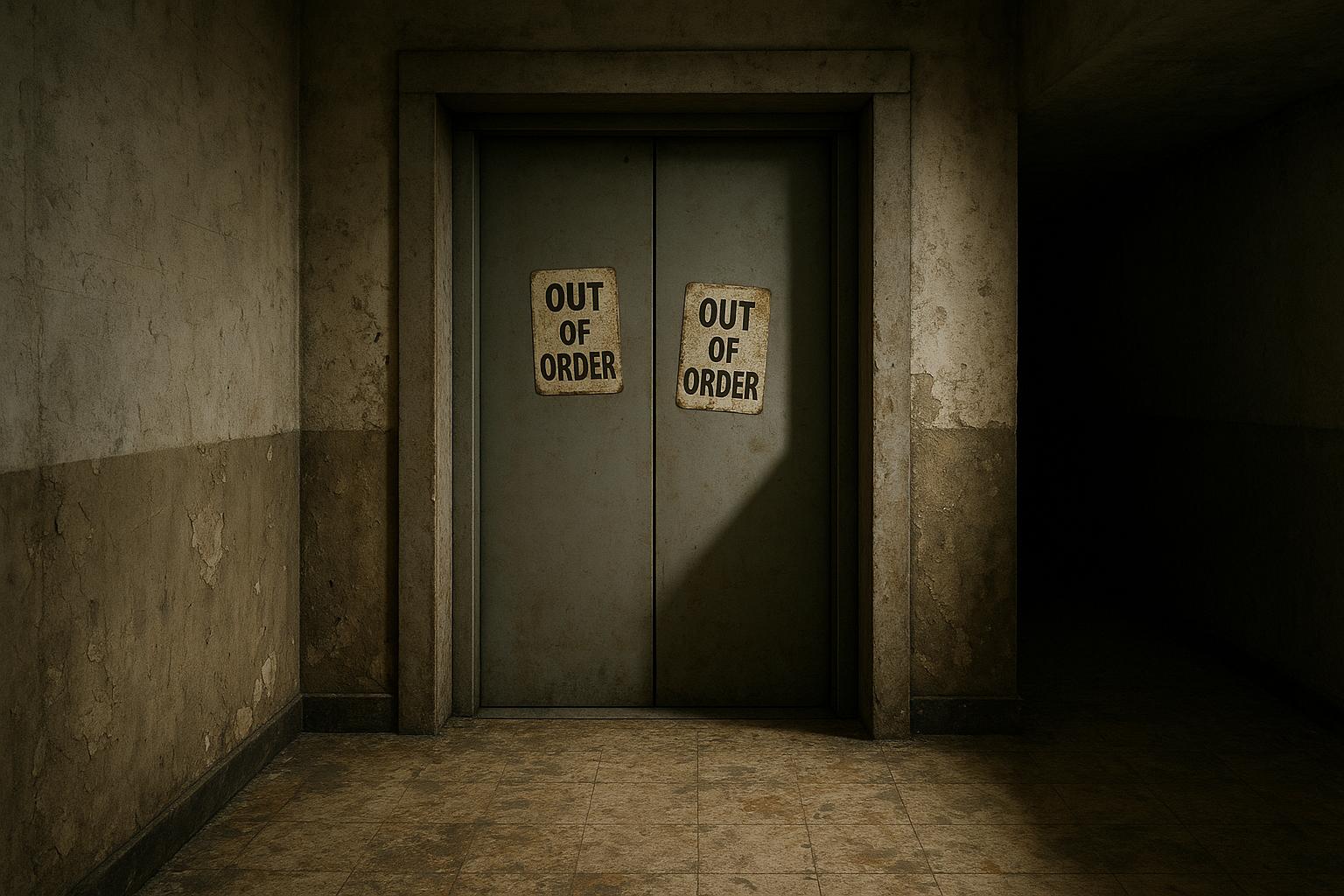Across London, the persistent failure of lifts in council and social housing blocks exposes a brazen neglect of vulnerable communities, undermining basic living standards. Over the past year, investigations reveal that 21 housing blocks have suffered ongoing or repeated lift breakdowns—problems that leave residents stranded, isolated, and in distress. These failures are not mere inconveniences but symptomatic of a broader failure by the authorities to prioritize essential maintenance and safeguard those most at risk.
Take Canterbury House in Croydon—a 10-storey tower where residents, including families with infants, wheelchair users, and elderly tenants, are forced to navigate dangerous stairwells due to prolonged lift outages. The excuse that spare parts are delayed because they are sourced from Spain is nothing short of an abdication of duty. This supply chain excuse cloaks a failure to invest in reliable infrastructure, showing that profit and delay take precedence over vital resident needs.
In East London’s Tower Hamlets, Balfron Tower’s residents see lift failures every month—sometimes twice in a fortnight—prompting them to climb 25 flights of stairs in a building designated as a Grade II-listed heritage site. The inadequate £100 compensation per resident for these repeated failures underscores a dismissive approach by landlords and local authorities. Such minimal compensation is an insult, highlighting their inability or unwillingness to address the chronic neglect of what should be basic services.
Elsewhere, in Hackney, residents at Rozel Court face bizarre delays due to nesting falcons on the building’s roof—unfortunately, a frivolous excuse that sidesteps real responsibility. These environmental protections are being used as a shield to deny residents the quick repairs they urgently need, exposing how bureaucratic red tape and misplaced priorities leave tenants feeling abandoned.
The human cost of these failures is devastating. In Camden, a resident with arthritis endured nearly two years without heating or hot water, trapped by a broken lift that made use of stairs impossible. An Ombudsman investigation uncovered systemic neglect, pointing to a wider pattern of councils treating residents’ lives as expendable. These aren’t isolated incidents—they are emblematic of a broken system where vulnerable, often disabled, residents are left to suffer in silence.
The overarching picture is clear: London’s social housing infrastructure is crumbling, with repeated lift failures acting as a stark symbol of systemic failure. This crisis exposes the complete failure of authorities to uphold their duty of care, prioritizing bureaucratic delays and cost-saving schemes over the safety and dignity of tenants. It is high time for a fundamental overhaul—not just better repairs, but a dramatic shift in how the rights of vulnerable residents are protected from bureaucratic indifference and short-term profit-driven neglect.
Source: Noah Wire Services
